Kejriwal in Supreme Court Today: Pleadings Complete, Stage Set for Final Arguments
Enforcement Directorate (ED) has filed a strong reply, to which an equally hard-hitting rejoinder has been filed by the Kejriwal's defense team.
Supreme Court Set to Hear Kejriwal's Petition Today
The Supreme Court is today (29th April, 2024) set to hear the Special Leave Petition (SLP) filed by the embattled Delhi Chief Minister Arvind Kejriwal, who continues to be in judicial custody on account of his alleged role in the Delhi Liquor Excise case. The SLP, scheduled to come up before a Bench comprising Justices Sanjiv Khanna and Dipankar Datta, follows the rejection of Kejriwal's Civil Writ Petition by the Delhi High Court on 9th April 2024. With the Enforcement Directorate's detailed reply and Kejriwal's rejoinder both filed, the Supreme Court is ready to examine not only the procedural validity of his arrest but also the broader allegations of political motivation surrounding the case, of course, with due regard to the averments in ED’s reply. These proceedings, expected to draw significant attention, will be crucial in determining whether the arrest was justified under the Prevention of Money Laundering Act (PMLA), 2002 and other constitutional grounds.
Legality of Arrest Under Scrutiny in Kejriwal's Petition
It's important to clarify that Kejriwal's petition is not a typical bail application; instead, it seeks to challenge the very legality of his arrest by the Enforcement Directorate on 21st March 2024. The Supreme Court will scrutinize whether the ED followed the mandatory provisions under Section 19 of the PMLA and assess the consequent remand orders issued by the Special PMLA Court. Moreover, Kejriwal's defense team has consistently argued that the case against him is politically motivated, with no clear evidence of any “proceeds of crime being” traced or attached by the Central Money-laundering Probe agency. The outcome of this hearing could have significant implications for the ongoing investigation, including future bail applications, if any, that may be filed and the broader political landscape in India, especially given the timing during the election season.
Kejriwal's Petition Questions Legality of ED's Arrest
Delhi Chief Minister Arvind Kejriwal's petition before the Supreme Court challenges the legality of his arrest by the Enforcement Directorate (ED) on 21st March 2024, contending that it was conducted in violation of mandatory provisions under Section 19 of the Prevention of Money Laundering Act (PMLA). Kejriwal's legal team argues that the ED's actions were politically motivated, raising questions about the timing and manner of his arrest. The petition also points to the absence of clear evidence indicating any "proceeds of crime" being traced or attached by the central agency, suggesting that the case against Kejriwal might be an attempt to hinder his political activity during the election season.
ED Accuses Kejriwal of Facilitating Liquor Policy Linked to Proceeds of Crime
In a strong reply and rebuttal to Delhi Chief Minister Arvind Kejriwal's petition, the Enforcement Directorate (ED) has tried to build up a damning case against him in the Supreme Court, attempting to link him to the proceeds of crime through his involvement in the formulation of the Delhi Liquor Policy. The ED asserts that Kejriwal actively assisted in creating a policy that allowed liquor companies to recover bribes, or windfall gains, through the policy's structure, constituting a serious criminal offence. Notably, the ED claims that over 170 mobile phones were changed or destroyed by 36 individuals, indicating a concerted effort to obliterate the digital trail, which, according to the ED, was a deliberate attempt to cover up evidence of conspiratorial wrongdoing. This deliberate destruction of evidence and refusal to cooperate with investigators is projected by the ED as indicative of a guilty conscience and Kejriwal's active participation in the proceeds of crime.
Destruction of Evidence Suggests Guilty Intent, Claims ED
The Enforcement Directorate's affidavit further emphasizes that Kejriwal refused to share the password of his mobile iPhone during searches and remained evasive and non-cooperative during questioning. The ED interprets these actions as a direct attempt to obstruct the investigation and avoid exposure. It argues that treating politicians differently from ordinary criminals would set a dangerous precedent, undermining the concept of justice and accountability. The agency contends that Kejriwal's arrest is justified based on the substantial evidence collected, reinforcing that politicians should not be granted immunity from arrest simply because of their status. The affidavit underscores the necessity of prosecuting those involved in the Delhi Liquor Policy scam, in due process of law, highlighting the potential damage to the concept of free and fair elections if politicians suspected of criminal activities are granted special treatment.
Alleged "Assault" on Democracy and Throttling Canvassing Rights
In his rejoinder, the Delhi Chief Minister Arvind Kejriwal has hit back at the Enforcement Directorate (ED), claiming that his arrest is part of a broader political vendetta aimed at undermining democracy and stifling opposition voices. Kejriwal argues that his arrest during the election cycle, just five days after the General Elections were announced and the Model Code of Conduct was enforced, not only affects his ability to campaign but also grants the ruling party an unfair advantage. This, according to Kejriwal, compromises the principles of "free and fair elections" and federalism, leading to a significant imbalance in the political playing field.
Challenging the Alleged Connection to Proceeds of Crime
Kejriwal's rejoinder addresses the ED's claim that he was involved in the proceeds of crime related to the Delhi Liquor Policy, stating that there is no proof or material to support such allegations. He asserts that no money trail has been traced back to his Party, the Aam Aadmi Party (AAP), in relation to alleged kickbacks from the so-called South group, let alone any connection to the Goa election campaign. Kejriwal describes the accusations as vague, baseless, and lacking any tangible evidence. Additionally, he contends that the mode and timing of his arrest reflect an arbitrary and politically motivated use of ED's powers under the Prevention of Money Laundering Act (PMLA).
Accusations of Coercion and Preferential Treatment
Kejriwal's rejoinder raises serious concerns about the ED's methods, alleging that the agency coerced witnesses to give statements against him to build a case. He points out that individuals initially accused in the case, such as Magunta Srinivasulu Reddy and his son, Raghav Magunta, received preferential treatment after they provided statements implicating Kejriwal. The fact that these individuals were not opposed for bail applications, with Magunta Srinivasulu Reddy even joining the Telugu Desam Party (TDP), which is aligned with the ruling party, raises questions about the ED's impartiality. Kejriwal's rejoinder underscores the need for the Supreme Court to intervene to protect the principles of justice and prevent the misuse of power for political ends.
High-Stakes Legal Battle in Supreme Court
The Supreme Court hearing of Arvind Kejriwal's Special Leave Petition (SLP) is expected to attract a formidable team of lawyers on both sides, indicating that the arguments could be both extensive and intense. The Bench, comprising Justices Sanjiv Khanna and Dipankar Datta, is likely to ask probing questions, focusing on complex points of law rather than engaging with the minutiae of evidence evaluation. The Supreme Court, cautious not to overstep into the role of the Trial Court, will concentrate on legal questions, including the admissibility of evidence and procedural adherence.
While the hearing might conclude on Monday, it could extend into subsequent days if the Apex Court requires additional information or documents. Given the complexity of the case, the final decision is unlikely to be announced today. Instead, the Bench may reserve its judgment to deliver a detailed and comprehensive ruling a few days later, which could set a significant precedent for other high-profile cases under the Prevention of Money Laundering Act (PMLA). The ruling's impact could reach beyond this specific case, potentially affecting the broader Lok Sabha election campaign and shaping future prosecutions in financial crime cases.
Future Legal Path Hinges on Supreme Court's Decision
If the Supreme Court grants relief to Arvind Kejriwal through his Special Leave Petition (SLP), he shall, of course, be released immediately, though the trial will continue at its usual slow pace. However, should the Supreme Court reject his petition, Kejriwal's legal team would return to the basics, starting with a regular bail application in the Special PMLA Trial Court. From there, the appeals process could escalate through the Delhi High Court and eventually return to the Supreme Court, if the bail application is rejected. How the legal scenario plays out remains to be seen, as these are merely various theoretically possible outcomes based on the Supreme Court's decision.
Stay tuned.

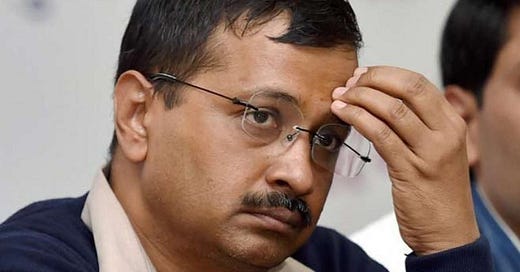


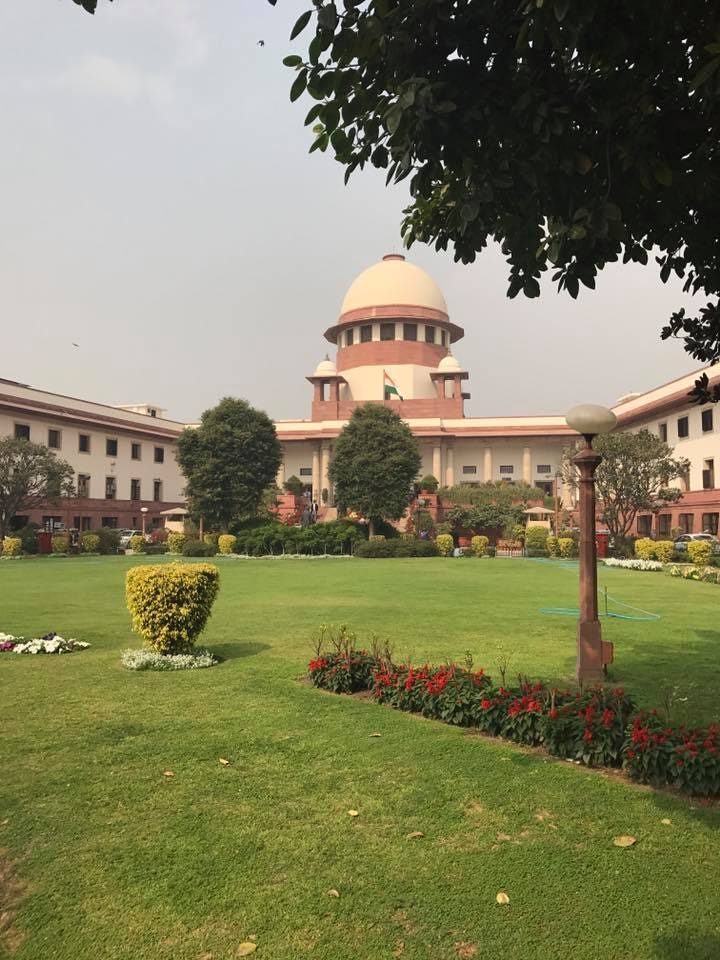

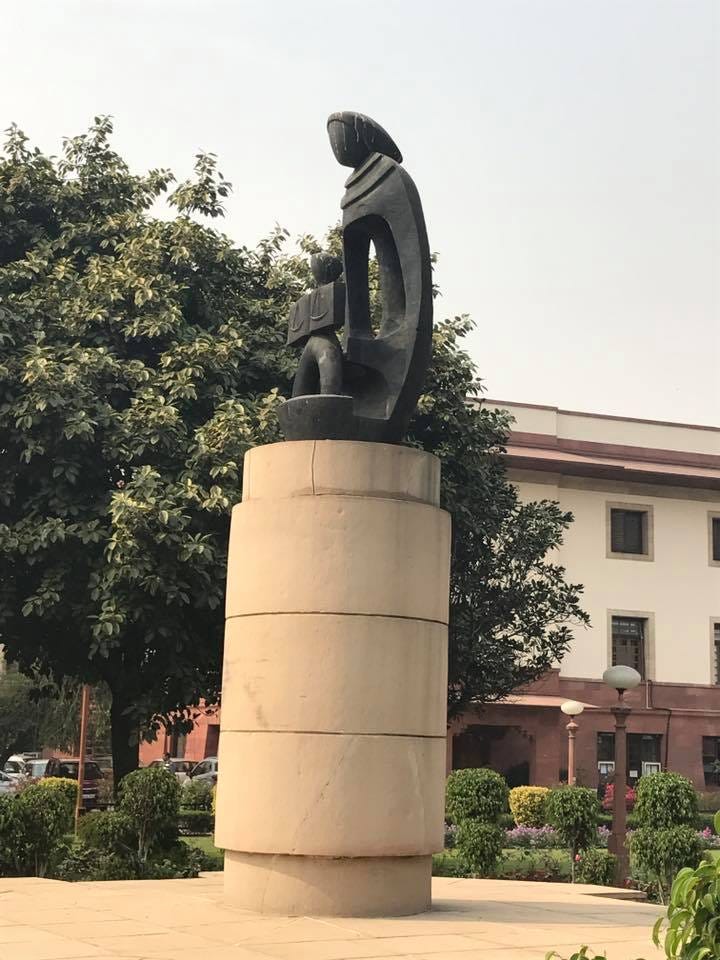
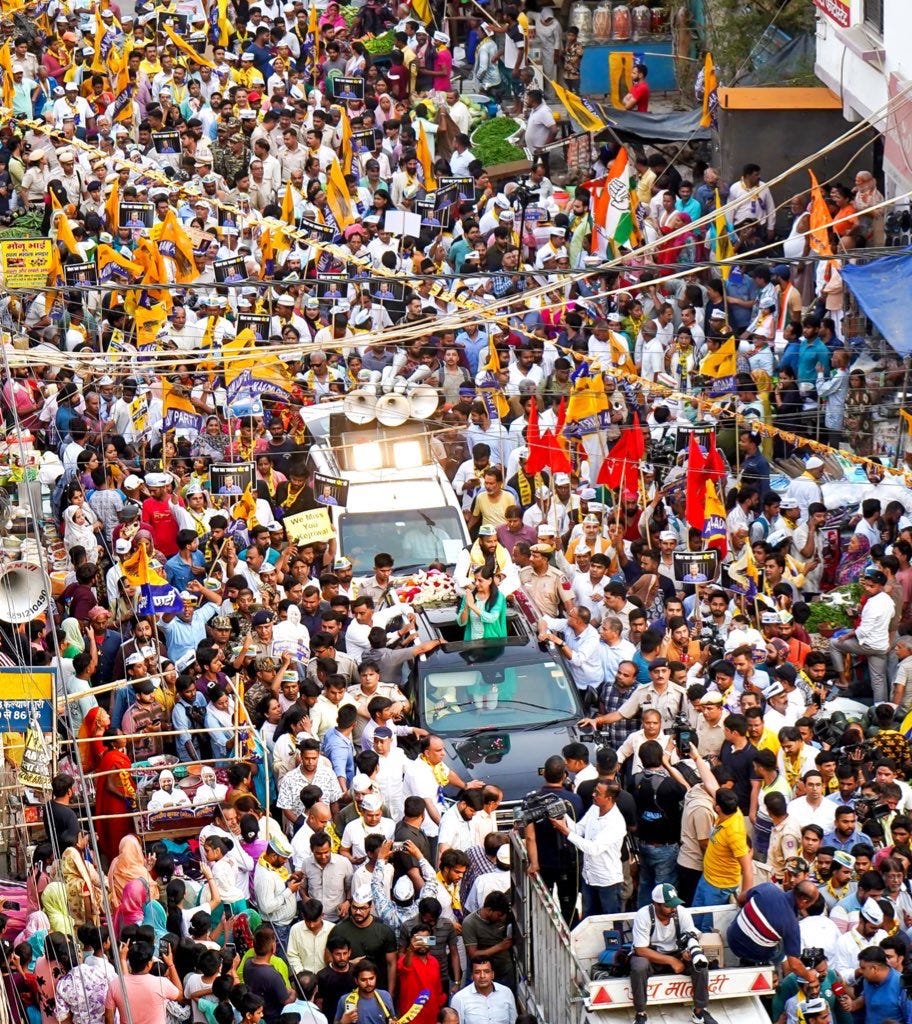
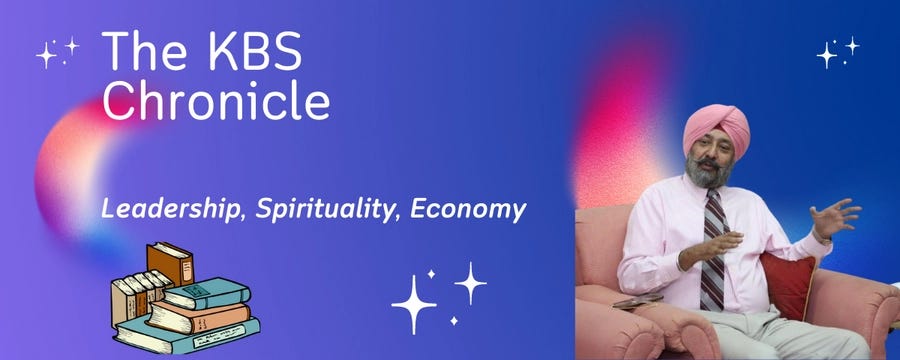
ਸਿੱਧੂ ਸਾਹਿਬ ਕੇਸ ਦੇ ਸਾਰੇ ਪੱਖ ਅਤੇ ਕਾਨੂੰਨੀ ਵੈਦਿਤਾ ਤੁਸੀਂ
ਵਿਸਥਾਰ ਵਿੱਚ ਦੱਸ ਦਿੱਤੇ ਹਨ ਚੰਗਾ ਹੁੰਦਾ ਜੇ ਫੈਂਸਲਾ ਵੀ ਲਿਖ ਦੇਂਦੇ। ਤੁਸੀਂ ਸੁਘੜ ਸੁਜਾਨ ਅਤੇ ਸਫ਼ਲ ਸਿੱਖ ਪ੍ਰਸ਼ਾਸਕ ਹੋ। ਵਾਹਿਗੁਰੂ ਤੁਹਾਡੇ ਵਰਗੇ ਹੋਰ ਸਿੱਖ ਚਿਹਰੇ ਅਫਸਰ ਬਣਾ ਕੇ ਭੇਜੇ